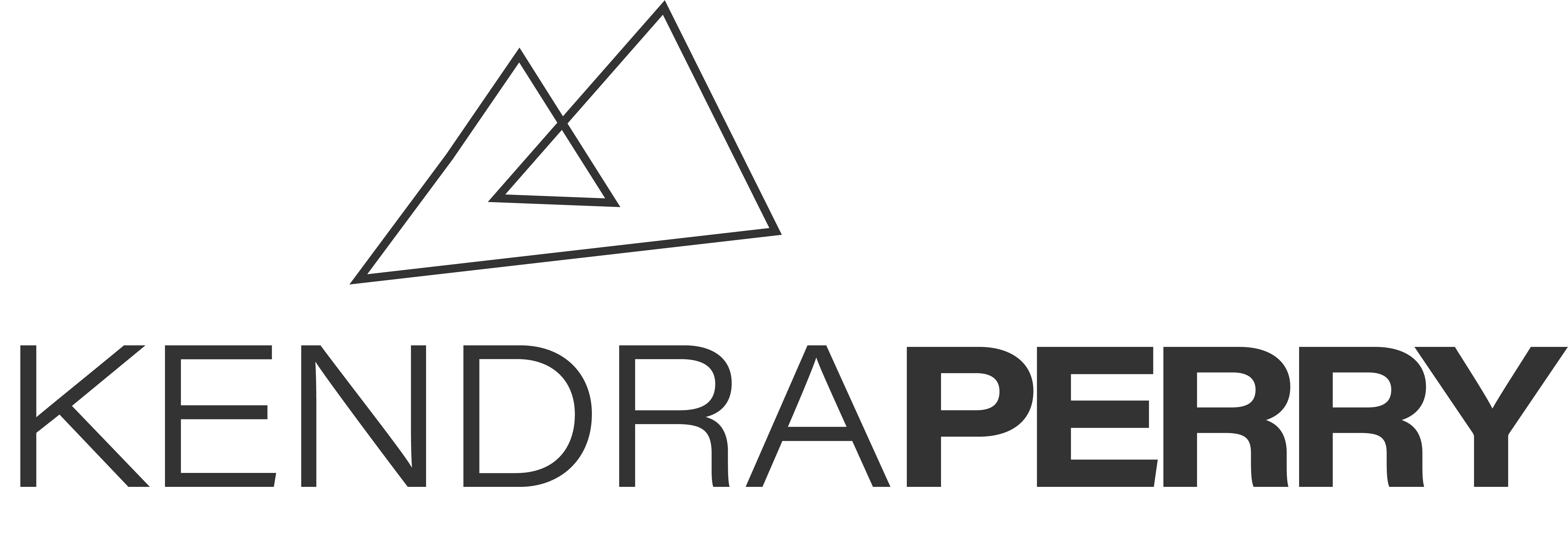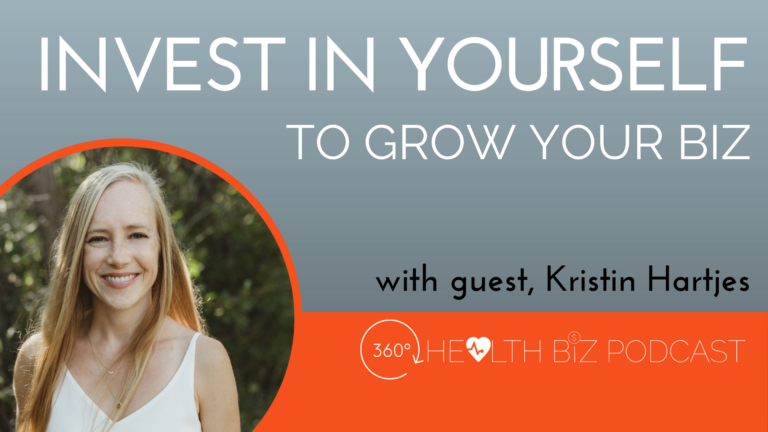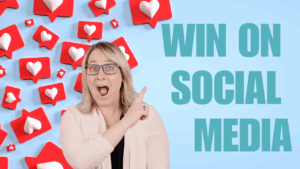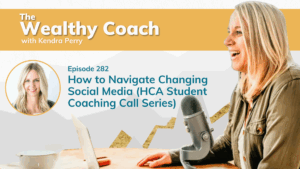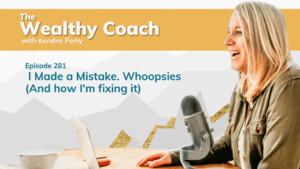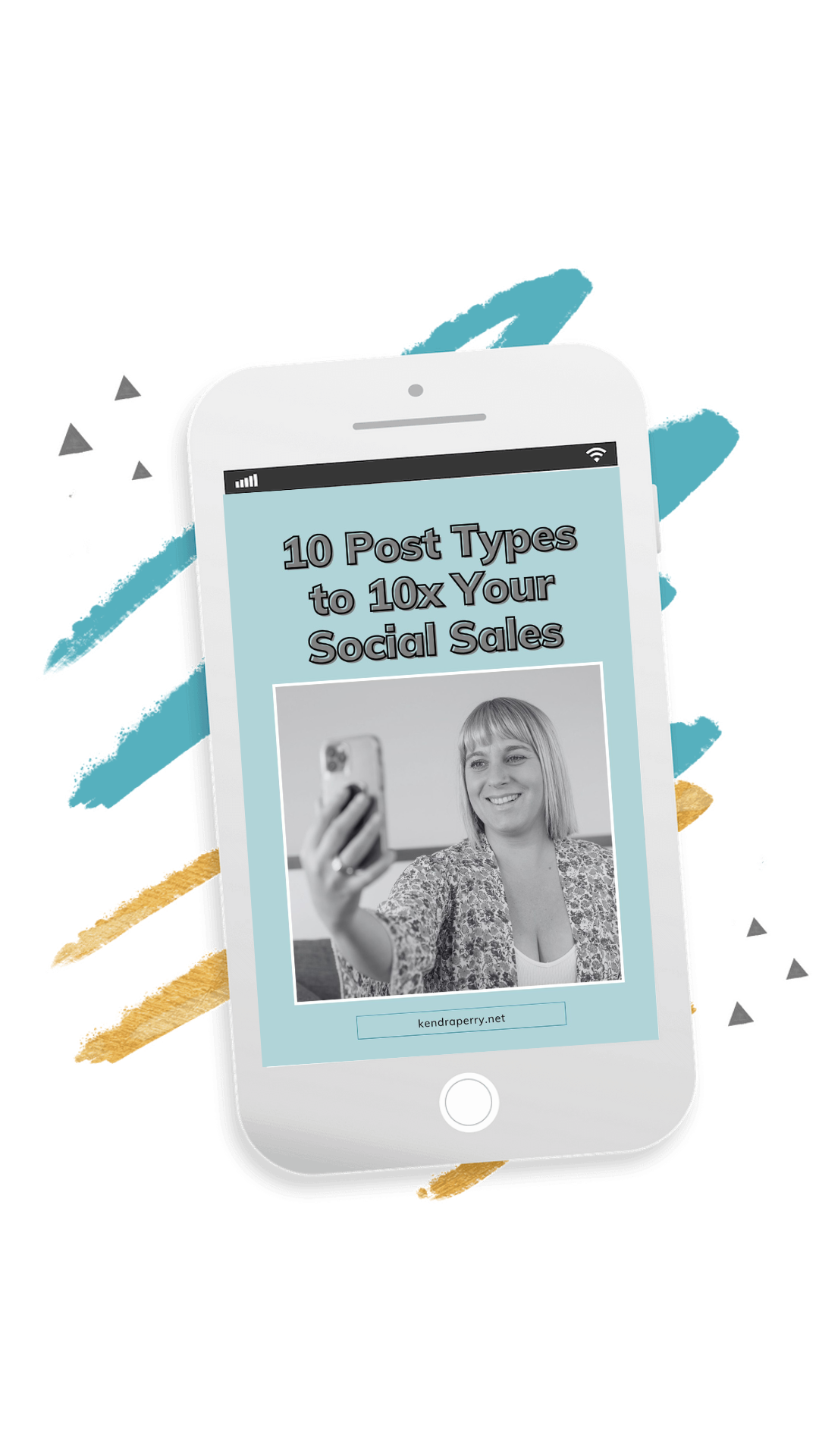WATCH THE EPISODE
LISTEN TO THE EPISODE
It’s hard to rationalize spending money on yourself when you’re first starting your business. But think of it this way, if you’re not willing to put money towards yourself, what makes you think potential clients will?
In today’s 360 Health Biz Podcast episode, we have a special guest, Kristin Hartjes. Kristin started out in chiropractic school but found more interest in functional medicine. When she finished school started out in brick and mortar, coach women around emotional eating and body image. As she grew her business she eventually shifted to focus more online and mentoring other health coaches in their businesses.
Through this process, she discovered just how much mindset and investing in yourself helps you grow as an business owner and grow your business. The mindsets we particularly dived into are imposter syndrome, self-doubt and struggles with perfectionism.
Kristin is a holistic doctor, transformational coach and business mentor. She helps new coaches overcome feelings of self-doubt, perfectionism and overwhelm so they can take courageous action in their businesses and their lives. Through practical business strategy and critical inner work, she empowers her clients to create a thriving online business so they can have the freedom they’re dreaming of.
Get Kristin’s Freebie: https://kristinhartjes.com/idealclientclarity/
Connect with Kristin:
youtube.com/channel/UCCnOhdgNWcJFKLWPBEeI_JAfacebook.com/groups/796082097104741/facebook.com/hartjesnaturalmedicine/instagram.com/kristinhartjes/
Connect with us on social:instagram.com/360healthbizpodcastfacebook.com/360healthbizpodcast
instagram.com/kendraperryincinstagram.com/sleeplikeaboss_
TRANSCRIPTS
Christine:Hello, everyone, and welcome to this brand new episode of the 360 Health Biz Podcast. Today, there’s two of us, but it’s not going to be my super hot, cute, intelligent, excellent hostess/co-hostess with the mostest Kendra because she’s under the weather today, but I am joined full power by a super interesting woman who’s going to blow your mind, so stay tuned for that.Christine:Now, I’m going to thank you all again for your reviews on iTunes. We’ve been constantly climbing up the ladder. We are so, so, so, so, so happy about the results we are getting, so thank you. Thank you so much for that. If you haven’t left your review yet, please head over there right now and do so. Now, without further ado though, I’m going to introduce you to Kristin. Kristin, and I didn’t ask you how I pronounce the surname, Hartjes?Kristin Hartjes:It’s Hartjes.Christine:Hartjes. It sounds like Dutch, or it looks Dutch.Kristin Hartjes:It is Dutch, actually.Christine:There we go. Luxembourg and the Netherlands are family in royal bloodline kind of thing, so that’s why it sounds familiar.Kristin Hartjes:Nice.Christine:Kristin is a holistic doctor, transformational coach, and business mentor, which I adore because it’s a little bit what I do in terms of health and business. Helps new coaches overcome feelings of self-doubt, self-doubt, hello, been there; perfectionism, not my thing, but I know a lot of you have that; and overwhelm so they can take courageous actions in their business and their lives. Through practical business strategy and critical inner work, she empowers her clients to create a thriving online business so they can have the freedom they are dreaming of. Just in that bio alone is so much goodness that I’m just like, “Hell, yeah,” so I cannot wait to dive into this. Kristin, tell me a little bit about your journey because I have an inkling that you didn’t start as a business mentor.Kristin Hartjes:Yeah, I did not. I definitely did not. I actually am trained as a chiropractor, so I have my doctorate of chiropractic, and that is what I had gone to school for. While I was going to chiropractic school, I became very interested in nutrition, and so I started studying functional medicine, and I did a lot of additional training in that. When I graduated from chiropractic school, my main focus actually was on nutrition.Kristin Hartjes:I did do some chiropractic, but mostly nutrition, and I had done a few I would say internships where I was working under doctors and learning different functional medicine techniques, so really great experience, but also, the experience really showed me that I wanted to have my own business because I was very limited as far as how much income I could be making and I was having to practice in a way that under the person that I was being taught as opposed to just doing my own thing and being able to practice and work with people in the way I really wanted to. That made me want to start my own business. Originally, I had started a business, a brick and mortar, more of the traditional business working out of an office space and seeing people [crosstalk 00:03:27].Christine:Well, I guess that’s what we’re taught at school, especially I think a lot of our listeners, they are still doing the same thing. They’re transitioning, or they are having the dream of doing what you did, but I guess when you are in training, they don’t really talk that much about what happens afterwards, or if they do, mostly it is that traditional brick and mortar business, so it’s lovely to know that you will totally understand our folks, where they’re from, but yeah.Kristin Hartjes:Like you said, that’s just kind of what I thought how you had to do it. What I started to realize is that that wasn’t really my vision for myself and my life, and I didn’t know where I wanted to be living, and I didn’t want to build up a whole practice and then move and not be able to bring my clients or my patients with me. During this process as well, I got really interested in mindset and in coaching and started to dive down that path. I ended up moving my business online to have more freedom and flexibility and also to be able to do the coaching. I specialized in working with women around emotional eating and body image because I had been something I had struggled with as well.Christine:Oh, wow. When was that, more less, like into [crosstalk 00:04:47]-Kristin Hartjes:Yes.Christine:… it’s always interesting to see when people jumped into the game.Kristin Hartjes:About six years ago.Christine:Yeah. Okay. Perfect.Kristin Hartjes:This is 2014 I think is when I [crosstalk 00:04:56].Christine:Yeah, similar to me. I started in 2015. Yeah.Kristin Hartjes:Okay. Okay. Yeah. Then from there, I really specialized in working with people that had some sort of a health background, like a lot of health coaches who were struggling with emotional eating and body image, so had gone through [crosstalk 00:05:12].Christine:How interesting.Kristin Hartjes:Yeah, because that was my experience, like even though I had done all this training in functional medicine, I had still been struggling with the body image and the emotional eating. I specifically specialized in helping people that had some sort of health or wellness background but still were struggling.Christine:Interesting. Do you reckon, and it’s just a little bit off tangent, but do you reckon that niche found you or you found that niche?Kristin Hartjes:Yeah, so that’s a good question. I think that’s a really good question, and I think it’s been a bit of a combination. I chose the niche of helping women with emotional eating and body image because of my experience with that, so whether it found me through my own experience or my life experience with it, but I decided to focus on that because I had had personal experience with it and could really relate and felt confident I could help people with that. I’d say a bit of a combination, and then specifically choosing to help women who had some sort of a health background because of my personal health background as well.Christine:I think that’s fascinating because it’s a double niche, and I love that. We are just in our mastermind honing down on niching, and we very often do have a double niche. That’s what makes it super efficient, so I absolutely adore this. All right, so you knew who you wanted to work with. What happened?Kristin Hartjes:I was working with women doing this, and what ended up happening is because I was working with women who had some sort of a health background, a lot of them were working on building a business, and so ended up asking me a lot of business stuff, and I ended up doing mentoring around that. Really, my business just went in that direction, and I was super passionate about it. Never in a million years did I think I would be a business mentor, and it has probably been the one thing that has changed me in my life more than anything else going through the process of starting my business, which is why I now help other people do it.Christine:I agree. You know what made me smile instantly was that you call yourself a business mentor, which is what I do too. It’s so funny because even training my trainees, it was a mentorship retreat. I tell people, “I’m a business mentor. I’m not a coach. I’m not a consultant. I will never tell you what to do per se. I will guide you, but you have to figure it out in a way.” I guess that’s the difference between mentoring and being a gentle guide. Of course, if they need to know the difference between wordpress.com and wordpress.org, I will tell them, but it is very different to, I guess, a program or something where you will get everything in a folder ready or a file already. It’s more of a, I guess, an organic process with the person. Would you agree?Kristin Hartjes:Yeah. Absolutely. I actually just wrote a post today about the fact that we are creators, and I think we’re creators in our business and our life and that we have to go through that process, and it’s never a perfectly straight line, even if someone’s telling you what to do because we all have kind of our own journey through it. You can definitely learn from other people, but you still have to go through the process and the journey of [crosstalk 00:08:39]-Christine:I agree.Kristin Hartjes:… your path within that path.Christine:Totally. One pet peeve that Kendra and I rave about all the time is that selling health is very different to selling money, which basically means pretty much everything in the world sells money, or beauty maybe as well, but mainly, if we look at online coaching businesses, it’s mainly selling money, whether it is copywriting, it’s ultimately to convert more clients to buy, business coaching is to get more clients to buy, even branding is to get more clients to buy.Christine:Health is very, very different, and we found that a lot of techniques or tactics and strategies that you get from business coaches don’t work in our line. What are some of the things… We honed it down to different elements where we have a different sales process a little bit. We talk a little bit different to our people. What are some things, some stumbling blocks that you maybe found in your journey of wisdom that are different between selling health and selling something like a product or a money service, let’s put it that way.Kristin Hartjes:I think this is a really good question because I think so many, even a lot of the health coaches, they always ask me, “Why did you switch from being a health coach to a business coach?” and a lot of times people think that’s because you can’t make money as a health coach, and that is absolutely not true at all. I think a lot of people think, “You can only make money if you’re helping other people make money.” It isn’t true. When it comes to selling anything, whether it’s helping people make money or helping people get healthier, I think the bottom line is being able to paint the picture of why someone wants that. Like what is the end result, how’s it going to improve their life, and I think we can all really relate even to thinking about the fact that money without your health is pointless. You can’t even enjoy the money.Kristin Hartjes:I think really understanding ourselves what the value is of what it is that we have to offer, like how it’s going to change someone’s life. For me, I even know through my own journey of the emotional eating and the body image, stuff, like that was ruining my life. It was just such a big factor that was keeping me from living a happy, fulfilling life-Christine:Agreed.Kristin Hartjes:… and so I really understand that and understand how important it is for all of us, whether it’s, really, a health, like a physical health problem or a mental health problem, as I seen it… it’s kind of related, but that when you can really paint a picture for people as far as how it’s going to change their life when they aren’t struggling with that anymore and they have the end result of what they want that you can’t even put a price on most of those things.Christine:Totally. I absolutely agree. Here’s also the linchpin in that because a lot of health coaches know, either because they have the experience themselves or because they know their niche so well, but they have so much trouble creating that pictures because they kind feel guilty that they are taking advantage of their niche. That’s what I really like about you saying the self-doubt, the impostor syndrome, all of that stuff. We all have different ways of helping our clients, which would be health coaches in this case overcome this belief, but I would love to just steal some techniques from you here for our listeners how you do that and when you see, “I have a client who is fantastic, and I know she can help or he can help so many people, but that inner block is there because of guilt.” Very often, I find that people who want your help are thinking it has to be selfless. “If I charge for it, I’m a bad person. Humility should be first. Helping people should be natural. How dare I put a price point on this?” How do you specifically help your people overcome this?Kristin Hartjes:I think it’s interesting that we have this double standard for helping people as far as whether it’s health coaching or coaching and that we shouldn’t charge for this, when really, it’s so much more valuable than everything that people spend their money on, like-Christine:I know.Kristin Hartjes:… someone could spend, let’s say, $1,000, and they could go and buy a brand new TV, and we think that that’s better than them spending $1,000 to… we should feel bad about it because they’re going to spend $1,000 to coach with you. No, that coaching is going to change their life for ever in way more ways than them going and spending $1,000 on a TV. I just like shift people’s perspective around this and be like, “It’s all about seeing the value of what you have to offer as a coach and really owning that.”Kristin Hartjes:I think recognizing that when someone is investing in themselves that they are much more likely to get really good results and to follow through and to really appreciate it as opposed to if they’re getting something for free, a lot of times people don’t even follow through and do the work because it’s hard. Transformational work is the hardest work you could possibly do, so-Christine:Absolutely.Kristin Hartjes:… so if you’re not investing anything in it, it’s very easy to be like, “This is really hard, and I’m just going to give up,” or, “I’ve hit this point, and I’m going to give up and [crosstalk 00:14:23].”Christine:[crosstalk 00:14:24].Kristin Hartjes:I even had this happen with a client yesterday. She was talking about a client of hers, and her client was like, “Oh, I’m so busy at work, and I just wanted to take a break from coaching.” I’m like, “No, this is when she needs your work, like the-“Christine:The most.Kristin Hartjes:”… the most. She needs your support right now,” and because she’s paid money, she’s going to show up and do the work and get those really good results whereas if she had been doing it for free, she would’ve just dropped out. She’d be-Christine:Forget it.Kristin Hartjes:… like, “I’m too busy with work. I’m just not going to do it,” and then she-Christine:Agreed.Kristin Hartjes:… couldn’t get those that she’s signing up with you to get. I think it’s just a shifter on this and really recognizing why shouldn’t someone pay for your services when [crosstalk 00:15:04]-Christine:Totally.Kristin Hartjes:… life changing.Christine:I think Kendra and I both, we figured out that we both invested heavily in personal development in the past, and we still, we both constantly work with at least one coach, and because we, I think… well, we know the value of it, but I think we also agreed that because we did, that because we know what it feels like to have invested and to feel a little bit suffocating because you did invest so much, that is also why we understand our potential clients who are on a call with us and why we can make it clear for them what bespoke coaching means.Christine:We do also find that when we’ve interviewed people for the mastermind, for example, that people who’d never done an investment like that, they have such a hard time charging because they’ve never been in the situation themselves. They’ve never really invested in themselves. That’s one thing that I’m absolutely completely convinced about. If you’ve never invested a certain sum into someone else, it’s very difficult to expect someone else to do the same because you would always think it’s crazy, but you’ve done it, so why would that be crazy?Christine:For example, my price point is between 7,000 and 10,000 a day. Is that crazy? Probably. But I’ve done it, and I’ve got amazing results, which means I don’t have an issue charging those prices either because I know the results as well, but I’ve done it before. Is that something where you think, “Okay, a lot of the people I work with, they don’t quite, would never have that perception or never had that experience of actually investing in yourself versus family, friends, family holiday, where… ” but never in really in them, in their personal development?Kristin Hartjes:Yeah. I think this is absolutely true, and I think it’s really important as a coach that you have been coached and you understand that experience, and like you said, you’ve actually invested in yourself. I’d say a fair number of people that I’ve worked with have before, have invested in themselves, have perhaps worked with the coach, but there’s a number of people that haven’t. I say for them, this is your starting point of investing in yourself and getting coached and seeing what it’s like to actually get coached and be on that other side so that you can see how transformational is and why it is so important because I absolutely agree. If you… Why should someone… How can you stand behind saying, “You should invest in coaching because it’s going to change your life,” if you’re not willing to do it yourself as a coach?Christine:Agreed.Kristin Hartjes:I agree too. I’ve seen how transformational coaching is and that is something, probably the number one thing that I will invest my money in because I see how valuable it is. From that standpoint, I can really stand behind like, “Yes, invest in coaching,” like [crosstalk 00:18:04].Christine:Yes. No. Absolutely. It is intangible at first. It’s definitely more difficult to write a science page for it, I guess, than a product, but it is, it’s just super, super powerful. One of the things… We addressed self-doubt a little bit. You also talk a lot about perfectionism and overwhelm. I do… Currently, we’ve started our mastermind in January, end of January. You should see our Facebook group. It’s nuts. Everyone wants to do everything at once. “I need my website. I need a new email marketing platform. I need a new lead magnet. I need a new landing page, I need a new eCommerce store,” everything at once, so I do get it. How do you help your clients with that overwhelm and what kind of things do overwhelm them because we do have a certain type in our group, but the people who you work with might be very different, so what is your experience with that?Kristin Hartjes:When it comes to overwhelm, I think it’s when… Overwhelm happens in the brain. We can only ever do one thing at a time. We can try to multitask, but really, you’re only doing one thing at a time. You might be going back and forth, but you’re really only doing one thing at a time. What I really see is that overwhelm is a brain problem, and usually, it’s because we’re thinking about, “I should be doing this, I should be doing that,” and you’re not doing one thing at a time. You’re not focused on one task in front of you. I think it’s so easy to get the shiny object syndrome where you’re like-Christine:Oh, yeah.Kristin Hartjes:… chasing after that next thing, and you’re like, “Oh, this person’s doing this and that’s working, so I need to do that.”Christine:Yes, so suddenly, you bought 10 courses, and you want to be a master in all social media platforms plus a superstar on YouTube, so it’s like, yeah, I get it. We’ve all been that, I’m afraid.Kristin Hartjes:What I really think and bring things back to is really simplicity and doing one thing at a time and finishing that, and then moving on to the next.Christine:Exactly.Kristin Hartjes:That’s really how I set up my program when I work with people. It’s very step by step, like do this, and then we do this, because what I find otherwise is what happens is people look at the whole thing, and they’re like, “Oh, my gosh, I’m back here. Look at what I have to do, all the stuff coming up,” and just your mind, I like to say like analysis paralysis is what happens-Christine:Agreed.Kristin Hartjes:… but you’re thinking of all the things you have to do, and you just get paralyzed.Christine:Exactly. That’s what we say all the time. It’s like just forget about anything tech right now. Just look at who you are. It’s the number one priority. You don’t need to worry about hex codes or about which font to use just yet. Let’s just figure out who you want to work with, so I totally agree. Sometimes, it doesn’t need to be linear. For example, I’m not a linear person. If I have a to-do list, there’s no way that I’m going to start at the beginning and finish at the end. My tasks are going to be all over the place, but I do finish one box at a time, so that’s been a huge project for me.Christine:Just today, I was looking at a course about Instagram and learning more about Instagram, and I was just like, “I don’t have the bandwidth for this right now.” It’s just like, “No, everything’s looking the way it should be. I think at a later point when I have breathing space, I can do this,” instead of thinking, “But if I sign up in the next 12 hours, I get 500 bucks worth of bonuses,” which I would ever use because I don’t have time and I have three other courses to finish, so it’s like… Then I was wondering if I should get my assistant to take the course, which is what I also do, but it’s like I totally agree. Just learn to say no to [crosstalk 00:22:01] and to that instant gratification kind of thing, thinking that that’s the next magic bullet. I think saying that, “No, I’m not going to start you right now. I’m going to force myself to finish this,” it then becomes a habit after a while.Kristin Hartjes:Yes. Yeah, so that you can actually have finished things as opposed to a bunch of things that you’ve started but you haven’t finished anything, which is what happens to a lot of people, and they’re just like spinning. I think all of that is very true, and everyone works a little different so you have to find your rhythm in it, but I think simplicity is key, and when it comes to a lot of people who have a successful business, usually it’s not super complicated-Christine:No.Kristin Hartjes:… all the time. It can be super simple, and it’s-Christine:No. Both Kendra and I just have gone from very complicated to more than simple. It’s like, “I just have one offering. That’s it. There’s two different ways of doing it, but that’s it. I have nothing else.” Again, Kendra has her courses, but she actually dropped her whole health coaching. She’s just doing master business and her hair tissue mineral analysis. It’s like we both really learned that lesson, which we advocate to everyone. Keep it super, super simple. Once you are having your financial freedom and you can breathe, that’s when you can start creating add-ons that are maybe a little bit cheaper, a little bit more generic, and sell more to the masses, but you need to start with your core project that’s actually going to bring money on the table.Kristin Hartjes:Exactly.Christine:Otherwise, you’ll never get out of this angst, out of this frustration and all that stuff.Kristin Hartjes:Yeah.Christine:I know that you focus a lot of inner work, and I’m a huge believer in this. We talked a little bit about imposter syndrome, how dare I charge. What other things are things that are typical blind spots for people who want to start building their own health coaching business or health practitioner or health-related business? What are things that you typically see that people themselves actually don’t?Kristin Hartjes:I think self-doubt is a big one. I think a lot of times what happens with self-doubt, we think what’s the problem is the action we’re taking or we don’t have the right plan or we don’t have the right systems in place, and we continue to be on this search for the right way to do it, like that magic bullet that’s going to make your business successful. What happens is that you’re ignoring your intuition. You’re ignoring what, I guess, the thoughts that are going on in your head that a lot of times are keeping you from actually doing the things that can be really simple like we were talking about that are going to lead you to getting the clients and the income.Kristin Hartjes:When you have that, a lot of self doubt, you have a really hard time investing in yourself. You have a really hard time getting support in your business because you don’t really believe that you can be successful with your business. That also keeps people from taking action in their business as well or just having weird energy behind their business. For example, a lot of people say they want clients and they want to create money in their business, but at the same time, they’re terrified [crosstalk 00:25:34]-Christine:I know.Kristin Hartjes:… because they’re afraid they can’t really help them, they’re afraid of charging for their services, like all these things, so I think it’s really important to go and clear up these thoughts that people are having that are actually keeping them from moving forward when it’s not, like I said, it’s not actually the action usually. It’s actually thoughts that are keeping them from getting [crosstalk 00:25:56].Christine:Oh, totally. Here’s the interesting thing, people, it’s that it’s a blind spot, and a blind spot is called a blind spot for reasons because most of the time you have no idea that you are having these thoughts, hence why coaching is so crucial because you don’t even know. You might be listening right now and think, “Oh, these poor people, but guess what? I can absolutely guarantee that you have some blind spots as well,” and once you realize that, that’s when change really happens.Christine:Once you have someone you trust and you work with that who is pointing out when you do have those self-doubts without realizing, you recognize them and you can catch them. Then you can work with, and you can overcome them, and you can live peacefully with them. They will still be there. But that is why it is so, so crucial to have a successful business in any business, but I think especially in health business. I think it’s just with a certain breed of person who is drawn towards that area. I think it’s absolutely crucial to get someone who’s your sounding board and your mirror on this. You’ve been listening today, and Kristin is doing just that. I know that you have an amazing tool for our listeners out there. How do they get in touch with you, and how can they get instant [inaudible 00:27:26] from you?Kristin Hartjes:Yeah. Definitely. I have a guide that I think is a great starting point. One of my biggest passions is around the confidence piece, and I find that getting clear on what it is that you’re offering, who you work with, really, your messaging around your business is such a huge piece of this. I have an Ideal Client Guide, and it walks you step by step through figuring out who is your ideal client, what’s your messaging around that. That is something that you can check out. It’s free. You can download it. It’s a PDF. You can go through and fill it out, and-Christine:Amazing. If you need the URL, it’s Kristin Hartjes, to Kristin with a K, different from me, K-R-I-S-T-I-N, and then H-A-R-T-J-E-S .com/idealclientclarity in one word, and we’ll have it linked in our show notes as well, just as well with all Kristin’s Facebook handle. She has a Facebook group, which I would recommend you join, YouTube channel, Instagram. She’s everywhere, and we would highly recommend you get in touch with her if you felt that was a tingling connection today. It can only be beneficial for sure.Kristin Hartjes:All right. I would love it.Christine:Absolutely. Kristin, thank you so much for being a guest on today’s show. I think there were so many messages that people just need to hear, and even if they think that’s not for them, it most likely is, so we just both invite you to try this out, have a go, have a look at her worksheet, have a look at everything that she’s presenting, and if it resonates, all the better. I want to thank you so much for being here today, and yeah, thank you.Kristin Hartjes:Yeah. Thank you for having me on. I love talking about this stuff, and I can tell we’re both very passionate about helping other wellness practitioners get out there and grow their business, and I think the more-Christine:For sure.Kristin Hartjes:… of us out there doing this powerful work, the better the world is. It’s important work, so-Christine:Agreed. We’re all different, so people are going to resonate with different people, so which is why-Kristin Hartjes:Absolutely.Christine:… we want to present different people for our audience so that they can find that perfect coach. All right, well, we will be back next week with a Biz Bomb. It’s all going to be about practical tips, so don’t forget to look at that and just follow us on Instagram, on Facebook, on YouTube. We are everywhere. Don’t forget to write us a raving review on iTunes. We would really appreciate it. That’s it for today. Thank you so much for listening, and we’ll talk to you next week. Bye.
